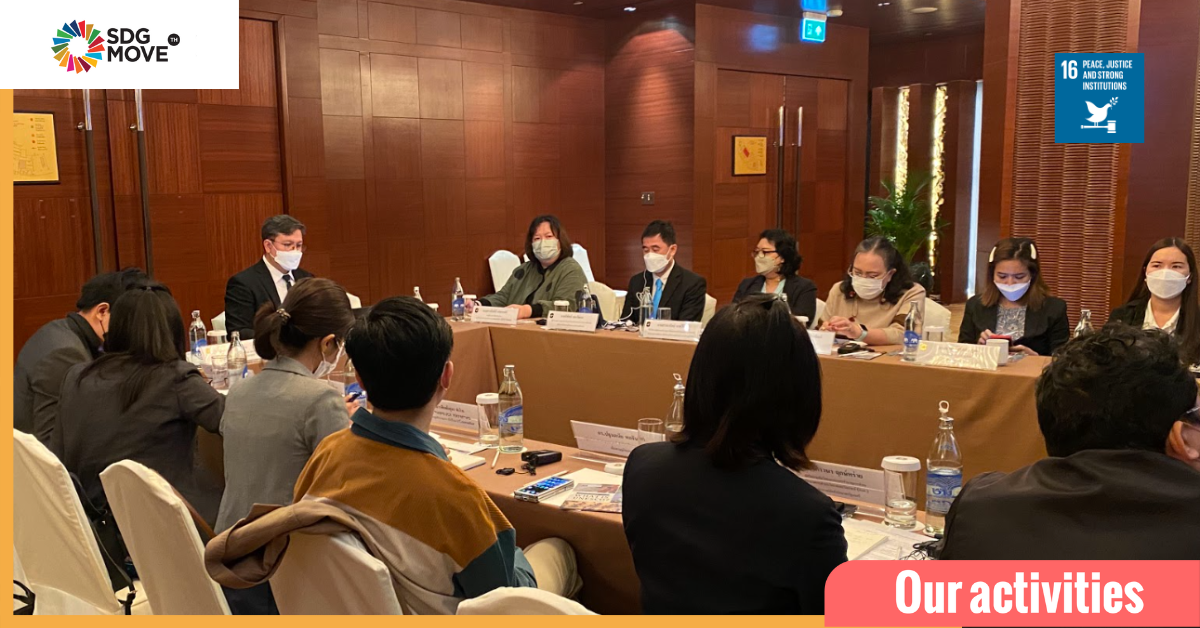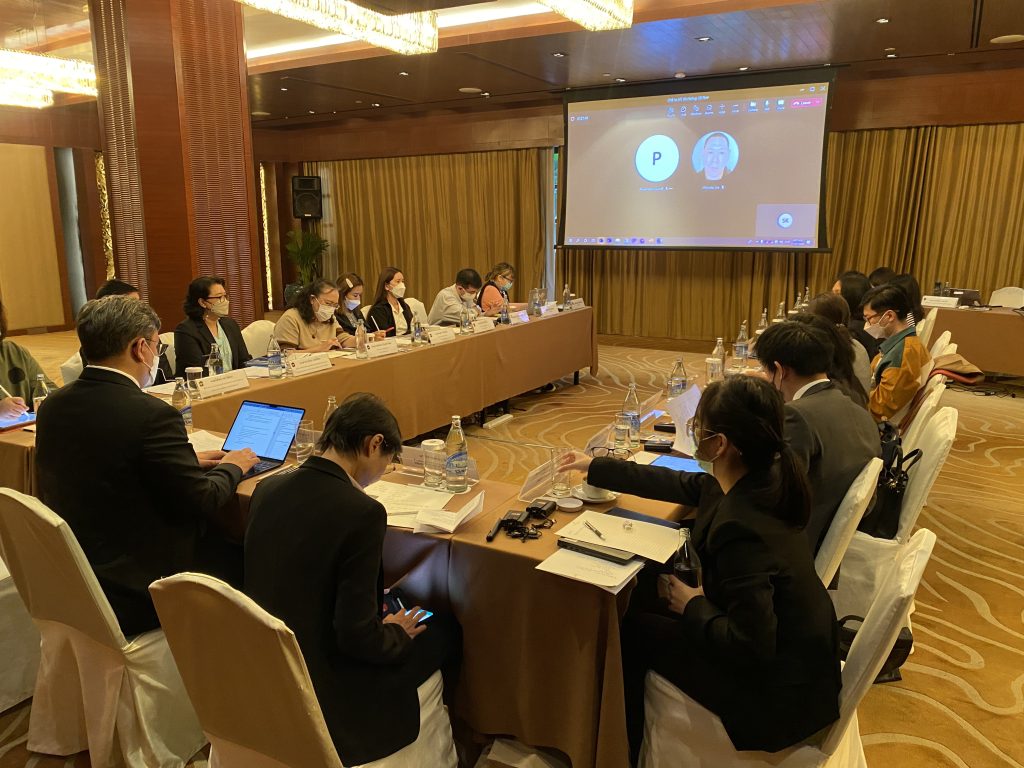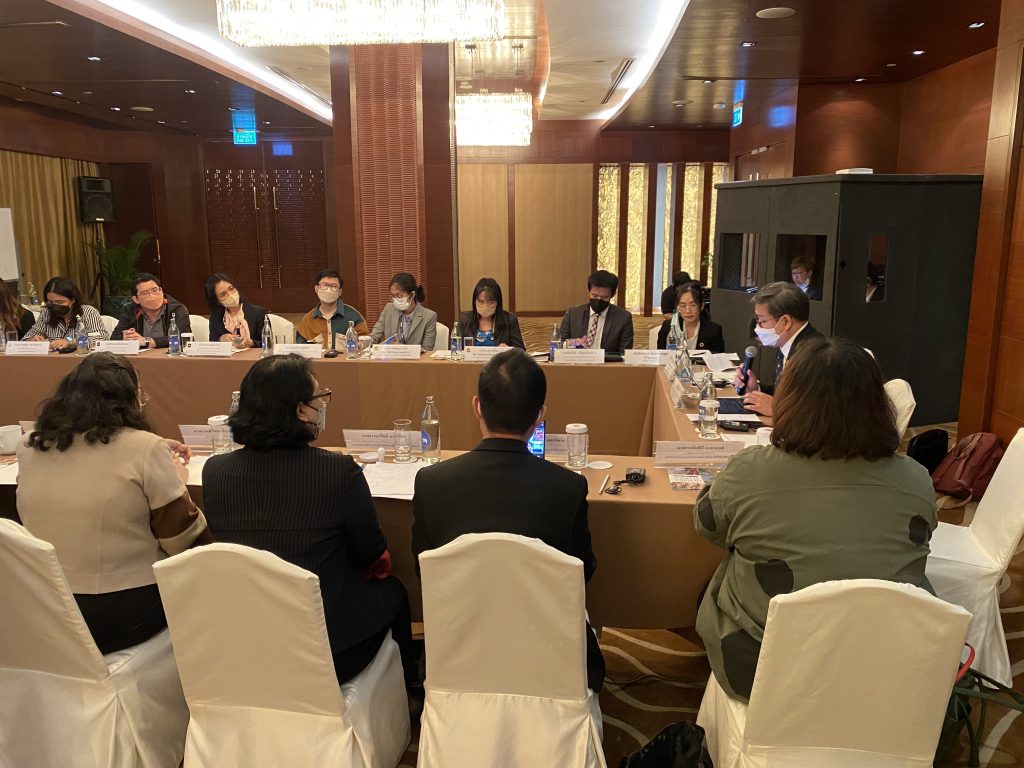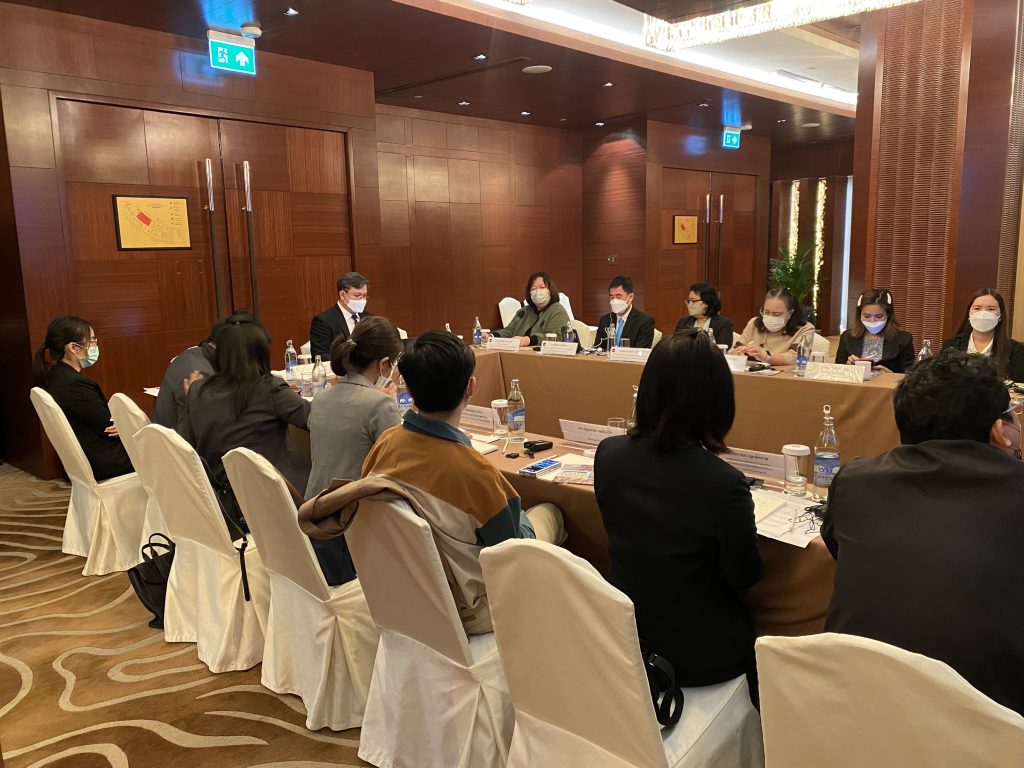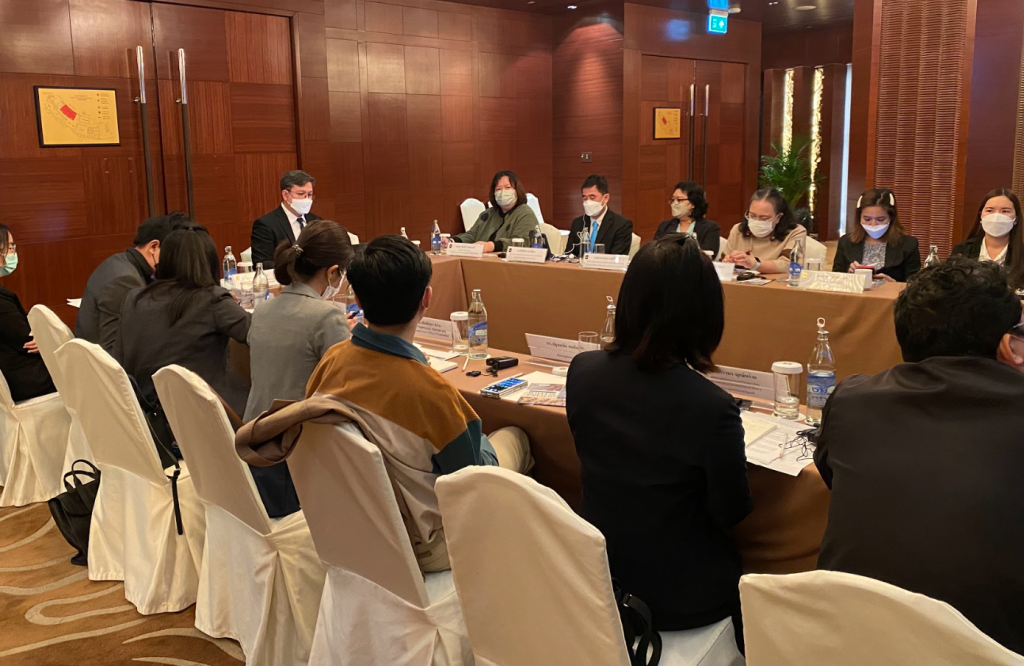The SDG Move team, in collaboration with UNESCO, organized a workshop on capacity development for Thai government agencies to monitor and report on Sustainable Development Goal (SDG) 16.10.2.
On November 28, 2022, SDG Move, represented by Assistant Professor Chol Bunnag, Director; Ms. Nantinee Malanon, Deputy Director; and the team, collaborated with the United Nations Educational, Scientific and Cultural Organization (UNESCO), as the UN agency responsible for monitoring SDG indicator 16.10.2, to organize a workshop on capacity development for Thai government agencies to monitor and report on the indicator at the Garden Gallery Room, Shangri-La Hotel, Bangkok.
The workshop aimed to strengthen the capacity of Thai government agencies to jointly develop a format and process for reporting on the progress of Thailand’s laws and policies on public data access, in line with the reporting guidelines for SDG indicator 16.10.2, “Number of countries with constitutional guarantees or equivalent policy frameworks that recognize and protect public access to information.” This is one of two indicators used to reflect the achievement of SDG target 16.10, which aims to ensure public access to information and protect fundamental freedoms, in accordance with national laws and international agreements.
Thailand was the first country in ASEAN to enact the Freedom of Information Act B.E. 2540, which guarantees the right to access information. This law requires Thai government agencies to disclose public information, including budgets, plans, and performance reports, in a convenient manner to the public under the principle of “openness by default, confidentiality by exception.” However, in terms of reporting progress, there are gaps in the process that need to be addressed. There needs to be a common understanding between the agencies responsible for providing data for the indicator and the agencies responsible for implementation.
At the meeting, Assistant Professor Chol Bunnag facilitated a discussion by inviting representatives from relevant sectors to present the role of each agency in relation to the data for the SDG indicator 16.10.2. The presentations allowed participants to understand the role and reasons why UNESCO acts as the agency responsible for monitoring data from all countries. It also highlighted the gaps that prevent the reporting of progress on this indicator from reflecting the actual level of implementation and that awareness is limited.
Ms. Sasithorn Kham-on, Project Officer, Communication and Information Sector at UNESCO Bangkok, explained the role of UNESCO as the only UN specialized agency with a mandate to promote “freedom of expression through speech and image” and “the preservation, increase and diffusion of knowledge.” For this reason, UNESCO is responsible for monitoring SDG indicator 16.10.2.
Ms. Kham-on noted that UNESCO has invited the Office of the Public Sector Information Commission (OPIC), which is the focal point for providing data for Thailand, to participate in UNESCO’s annual survey on access to public information in 2021 and 2022. However, this effort has not been reflected in Thailand’s Voluntary National Review (VNR) on the implementation of the 2030 Agenda for Sustainable Development, and other relevant government agencies have not made use of the data for Thailand collected by UNESCO’s survey and published in its annual Global Report on the Right to Information.
Based on the reflections above, the meeting participants expressed their opinions on the causes and found a significant gap: “the lack of a central coordination space for relevant agencies to discuss and exchange information before preparing the United Nations report.”
For example, the roles between the data reporting agency and the data owner agency are another issue that causes reporting gaps. Although OPIC is responsible for SDG target 16.10, the main goal, SDG 16, is under the responsibility of the Ministry of Justice. The Ministry of Justice monitors data on access to information using both domestically-developed measures and tools from international organizations, such as the United Nations Development Programme (UNDP) and the World Justice Project (WJP). The Ministry of Justice then sends data on SDG 16 to the Ministry of Foreign Affairs for reporting in Thailand’s VNR.
In terms of participation in the review, it was found that in the past, data was processed from the data in the questionnaire that the agencies responded to the UNESCO central system. It was not discussed or reviewed with the relevant agencies, and UNESCO Bangkok could not publish it either. It could only be sent back to OPIC to request data from UNESCO and forward it to other responsible agencies for publication. Therefore, the meeting proposed that a cross-checking process should be organized jointly.
The following are the key conclusions from the workshop on reporting the SDG indicator 16.10.2 for Thailand:
- All agencies agreed that the data from the UNESCO survey should be the primary source of data. OPIC can use this data for publication.
- There should be a mechanism for discussion before submitting data to UNESCO. It was proposed that a meeting be held to discuss the data to be submitted. This is usually done between April and June.
- There should be a mechanism or central agency to coordinate data preparation.
- UNESCO is willing to support the organization of a workshop to build knowledge and understanding among the agencies that will participate in the survey.
Last Updated on February 22, 2024











